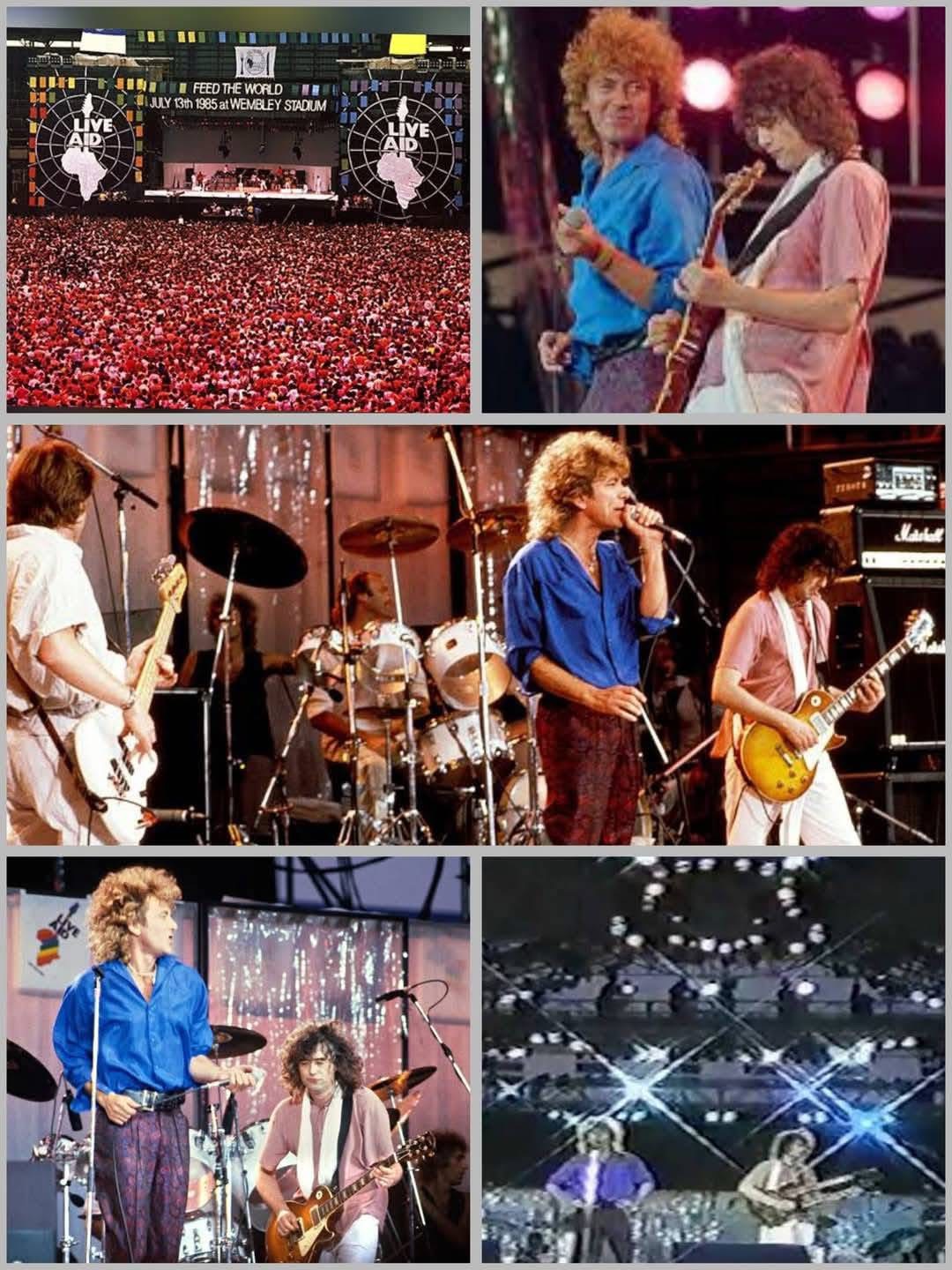Live Aid, held on July 13, 1985, was one of the most iconic concerts in music history. Organized by Bob Geldof and Midge Ure, the massive event aimed to raise awareness and funds for the devastating famine in Ethiopia. It took place simultaneously at two major venues: Wembley Stadium in London and John F. Kennedy Stadium in Philadelphia, drawing a global audience of over 1.5 billion across 150 countries.
The concert featured a legendary lineup of artists, uniting rock, pop, and soul musicians in a show of global solidarity. Among the most anticipated acts was Led Zeppelin, who reunited for the first time since disbanding in 1980 following the death of drummer John Bonham. Surviving members Robert Plant, Jimmy Page, and John Paul Jones took the stage in Philadelphia, with drummers Phil Collins (who had famously flown from London to Philly by Concorde) and Tony Thompson filling in. Despite technical issues and limited rehearsal time, their performance was historic—though later criticized by the band themselves for its quality. Nonetheless, it marked a significant moment in rock history.
Other unforgettable performances included Queen’s triumphant set at Wembley, often cited as one of the greatest live rock performances ever. U2 also made a lasting impact with a passionate rendition of “Bad,” while Phil Collins played in both cities on the same day. Additional acts included The Who, Elton John, David Bowie, Mick Jagger, Bob Dylan, Eric Clapton, Sting, George Michael, Duran Duran, Judas Priest, Black Sabbath, Santana, Adam Ant, Howard Jones, and more.
Live Aid not only raised over $125 million for famine relief but also demonstrated the power of music to inspire global change. It remains a benchmark for benefit concerts and one of the most significant cultural events of the 20th century.









